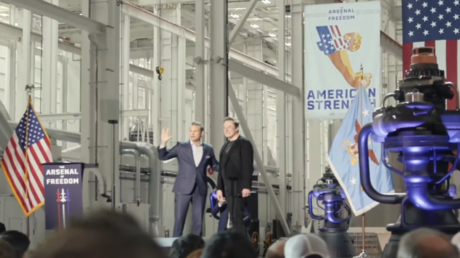
Researchers in Brazil have announced a quicker, more accurate coronavirus test than the existing method, allowing them to assess more people at once. The test has already been patented in the US and will be available from June.
Scientists at the Hospital Israelita Albert Einstein in Sao Paulo used Next Generation Sequencing (NGS), which identifies a particular disease by reading fragments of DNA. They adapted the NGS test to detect ribonucleic acid (RNA), the predominant molecule in viruses like SARS-CoV-2.
“The virus has RNA and our research group was interested in knowing how a molecular test could be used in the context of this pandemic,” said Claudio Terra, the hospital’s director of innovation and digital transformation.
The NGS test is as precise as the conventional RT-PCR method used around the world, but it has the major advantage of allowing for over 1,500 tests to be carried out simultaneously – a 16-fold increase in processing volume. The current tests, known as serological tests, focus on checking for antibodies produced by the human body to fight the infection.
However, they can only work some 14 days after the initial infection, a lead time which in turn leads to a higher number of false negatives (up to 30 percent). The RNA tests detect coronavirus infection from the first day and provide results within three days, after the tests are administered via injection or oral swab.
The Hospital Israelita Albert Einstein’s labs conducted 150,000 exams in a 72-hour period, up from an initial 2,000 tests per day.
Pathologist Joao Renato Rebello Pinho, coordinator of the Einstein Special Techniques Laboratory, said their main concern was “dramatically increasing” Covid-19 testing capacity at a “more accessible” cost. Widespread testing using this methodology will begin across Brazil in June and will be shared around the world shortly after.
The patent has already been registered through the International Patent System in the United States and will also be made available there from June.
Think your friends would be interested? Share this story!




